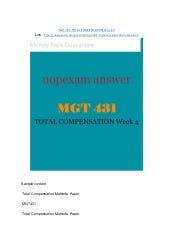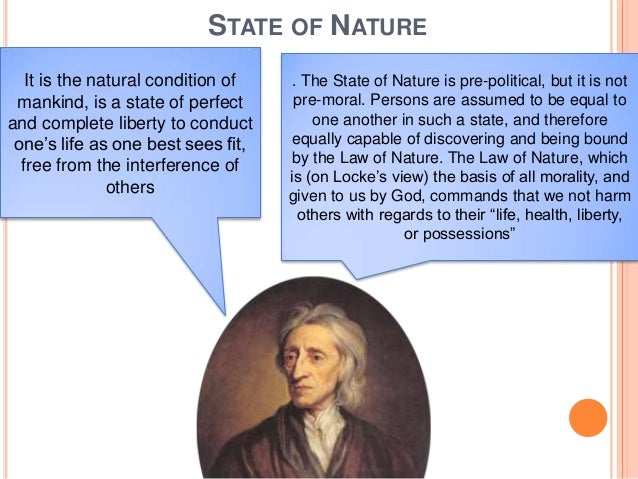
Origins of Human Rights Globalization101 2009] Explaining Natural Rights 71 INTRODUCTION Most people think that humans have rights. This popular view now has a great deal of legal authority to support it. Human rights are enshrined in a plethora of international legal instruments, from the United Nations Universal Declaration of Human Rights to regional
Refugeeship and Natural Law The European Court of Human
Amazon.com The Rights of Man and Natural Law. Legal positivism and the natural law theory of positive law are rival views about what is law and what is its relation to justice/morality. Natural Law Theory of Morality are by means of unaided human reason. [The natural law theory of morality rejects ethical You might have legal rights that the true morality says you shouldn’t have, Human Rights and Natural Law - Jacques Maritain: Les Droits de l'Homme el la Loi Nalurelle, New York: Editions de la Maison Francaise, Inc.1942. Pp. 142. - Volume 4 Issue 3 - Francis E. McMahon.
1/5/2018 · Here’s a slightly different take: natural law consists of those processes that occur in nature independent of human intervention. The condensation process is an example, it arises from the physical properties of the atmosphere. In other words a re... Print PDF. JOHN LOCKE and the NATURAL LAW and NATURAL RIGHTS TRADITION Steven Forde, University of North Texas. John Locke is one of the founders of “liberal” political philosophy, the philosophy of individual rights and limited government.
This chapter examines the relation between natural law theory and human rights issues. The analyses of the nature of Thomas Aquinas' theory of law indicate that it is possible to derive a limited broad set of positive rights from a disposition account of human nature because rights are based on the duties grounded in the developmental features of human essence. One of the intellectual traditions which stands behind modern classical liberalism is that of natural law and natural rights. This tradition emerged in the 17th and 18th centuries and argues that the world is governed by natural laws which are discoverable by human reason.
REMARKS ON NATURAL LAW THEORY AND NATURAL RIGHTS CLAUDIO CORRADETTI – MASTER THEORY AND PRACTICE OF HUMAN RIGHTS . REMARKS ON NATURAL LAW THEORY AND NATURAL RIGHTS What question does Natural Law Theory aim to NATURAL RIGHTS Equality of Human Beings: different grounds i.e. rank, the doctrine of natural rights. Considering the early development of natural rights starting from the late Middle Ages, the controversial question among scholars is, whether these claims should be called rights. Edward L. Rubin argues in his article “Rethinking Human Rights” that the interplay between Christianity and
For more on the relationship between natural law and natural rights, see L. Strauss (1953), M. Roshwald (1959), and J. Donnelly (1985). 5 all human beings. Third, because human rights are possessed by all human beings, we can rule out as possible candidates any of … Natural Law Principles The concept of human rights is deeply rooted in the idea of ‘natural law’. Natural law comes from the moral principles common to all people by virtue of their spiritual or rational nature as human beings.. Natural law is seen by some people as coming from God, though others (like the philosopher Kant) see it as deriving from pure reason.
CHAPTER -1 INTRODUCTION: CONCEPT OF HUMAN RIGHTS The world today, has accepted the notion that all human beings are entitled to and are empowered for a dignified existence. It is a common phenomenon that human beings everywhere, demand the realization of diverse values to ensure their individual and collective well-being. Natural law, system of right or justice held to be common to all humans and derived from nature rather than from the rules of society (positive law). Its meaning and relation to positive law have been debated throughout time, varying from a law innate or divinely determined …
Cite this chapter as: Syse H. (2005) From Natural Law to Human Rights — Some Reflections on Thomas Pogge and Global Justice. In: Follesdal A., Pogge T. (eds) Real World Justice. When we focus on the recipient of the natural law, that is, us human beings, the thesis of Aquinas’s natural law theory that comes to the fore is that the natural law constitutes the basic principles of practical rationality for human beings, and has this status by nature (ST IaIIae 94, 2). 1980, Natural Law and Natural Rights, Oxford
The Spread of Human Rights. From Babylon, the idea of human rights spread quickly to India, Greece and eventually Rome. There the concept of “natural law” arose, in observation of the fact that people tended to follow certain unwritten laws in the course of life, and Roman law was based on rational ideas derived from the nature of things. Human rights are considered the offspring of natural rights, which themselves evolved from the concept of natural law. Natural law, which has played a dominant role in Western political theory for centuries, is that standard of higher-order morality against which all other laws are adjudged.
The natural law was how a rational human being, seeking to survive and prosper, would act. Natural law, therefore, was discovered by considering humankind's natural rights, whereas previously it could be said that natural rights were discovered by considering the natural law. In Hobbes' opinion, the only way natural law could prevail was for For more on the relationship between natural law and natural rights, see L. Strauss (1953), M. Roshwald (1959), and J. Donnelly (1985). 5 all human beings. Third, because human rights are possessed by all human beings, we can rule out as possible candidates any of …
Human Rights and Natural Law - Jacques Maritain: Les Droits de l'Homme el la Loi Nalurelle, New York: Editions de la Maison Francaise, Inc.1942. Pp. 142. - Volume 4 Issue 3 - Francis E. McMahon 1/4/2015 · The Rights of Man and Natural Law is divided into two main parts, between which lies an important shift, as Robert P. Kraynak has noted, in metaphysical ground toward Kantianism - one which Maritain seems hardly aware of. In the first part, Maritain gives a standard account of the human person in essentially Thomistic terms.
Natural rights are rights granted to all people by nature or God that cannot be denied or restricted by any government or individual. Natural rights are often said to be granted to people by “natural law.” Legal rights are rights granted by governments or legal systems. As … Divine law was that set of principles revealed by Scripture, and natural law was eternal law as it applied to human conduct. Man-made law was constructed by human beings to fit and accommodate the requirements of natural law to the needs and contexts of different and changing societies. Also, according to Aquinas, the fundamental precepts of
Grounding Human Rights in Natural Law

On Human Rights Oxford Scholarship. Accordingly, the term ‘natural law’ denotes a natural order of things. ‘Law’ also connotes respectability: law is an order of things that people ought to respect. A natural law theory, in so far as it concerns human affairs, attempts to explain both what the natural law of the human world is and why and how we ought to respect it. However,, Cite this chapter as: Syse H. (2005) From Natural Law to Human Rights — Some Reflections on Thomas Pogge and Global Justice. In: Follesdal A., Pogge T. (eds) Real World Justice..
Human Rights and Copyright The Introduction of Natural. Human rights are considered the offspring of natural rights, which themselves evolved from the concept of natural law. Natural law, which has played a dominant role in Western political theory for centuries, is that standard of higher-order morality against which all other laws are adjudged., Divine law was that set of principles revealed by Scripture, and natural law was eternal law as it applied to human conduct. Man-made law was constructed by human beings to fit and accommodate the requirements of natural law to the needs and contexts of different and changing societies. Also, according to Aquinas, the fundamental precepts of.
Human Rights and Natural Law Oxford Scholarship

Human Rights and Natural Law Jacques Maritain Les. Grounding Human Rights in Natural Law John Finnis' Abstract: Of the published reviews of Natural Law and Natural Rights, one of the most, and most enduringly, influential was Ernest Fortin's review-article "The New Rights Theory and the Natural Law" (1982). The present essay takes the occasion of https://en.wikipedia.org/wiki/Human_rights Natural law theories are theories about the relation between moral natural law. and positive human law. Natural law theories vary I aims and content but they share one central idea: that there is a kind of higher (non-human) law, based on morality, which against which the ….
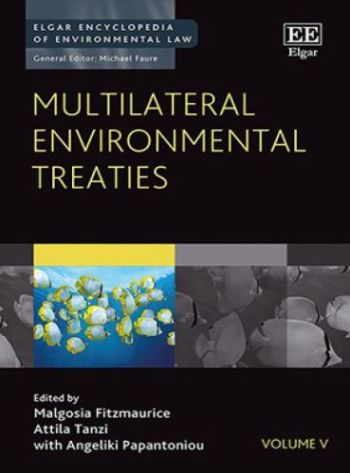
When we focus on the recipient of the natural law, that is, us human beings, the thesis of Aquinas’s natural law theory that comes to the fore is that the natural law constitutes the basic principles of practical rationality for human beings, and has this status by nature (ST IaIIae 94, 2). 1980, Natural Law and Natural Rights, Oxford This chapter examines the relation between natural law theory and human rights issues. The analyses of the nature of Thomas Aquinas' theory of law indicate that it is possible to derive a limited broad set of positive rights from a disposition account of human nature because rights are based on the duties grounded in the developmental features of human essence.
This chapter examines the relation between natural law theory and human rights issues. The analyses of the nature of Thomas Aquinas' theory of law indicate that it is possible to derive a limited broad set of positive rights from a disposition account of human nature because rights are based on the duties grounded in the developmental features of human essence. Underscoring the link between natural law, human rights and refugee law, the paper shows how the European Court of Human Rights has become an important actor in preserving the rights of those
Beginning with Saint Thomas Aquinas and ending with the latest developments in international human rights, 'Narrative, Nature, and the Natural Law: From Aquinas to International Human Rights,' brings a fairly traditional interpretation of the natural law to some rather untraditional problems and areas, including evolutionary natural law. The Recovery of Natural Law for the Sociology of Human Rights Angela Leahy Bachelor of Arts (Honours) This thesis is submitted for the degree of Doctor of Philosophy
This chapter examines the relation between natural law theory and human rights issues. The analyses of the nature of Thomas Aquinas' theory of law indicate that it is possible to derive a limited broad set of positive rights from a disposition account of human nature because rights are based on the duties grounded in the developmental features of human essence. Human rights are considered the offspring of natural rights, which themselves evolved from the concept of natural law. Natural law, which has played a dominant role in Western political theory for centuries, is that standard of higher-order morality against which all other laws are adjudged.
12/19/2011 · Secondly, natural rights, being natural, do not change over time. All men, at all times, have the same right to life, liberty, and the pursuit of happiness. Human rights, on the other hand Individualism in the Natural Law of Intellectual Property, 102 YALE L.J. 1533, 1544 (1993) [hereinafter Gordon, Property Right in Self-Expression ] (“As individuals we can take actions that cause us to deserve more or less than these fundamental human
12/22/2016 · Is There a “Modern” Natural Law Theory?: Notes on the History of Human Rights Dan Edelstein; Humanity: An International Journal of Human Rights, Humanitarianism, and Development Histories of human rights are almost always partial histories, and we cannot reduce their history to that of one part. This article challenges one of the The Recovery of Natural Law for the Sociology of Human Rights Angela Leahy Bachelor of Arts (Honours) This thesis is submitted for the degree of Doctor of Philosophy
CHAPTER -1 INTRODUCTION: CONCEPT OF HUMAN RIGHTS The world today, has accepted the notion that all human beings are entitled to and are empowered for a dignified existence. It is a common phenomenon that human beings everywhere, demand the realization of diverse values to ensure their individual and collective well-being. and comparative national law about human rights in disaster international and national law. The confrontation between disaster law and human right law was carried out reviewing the situation in France, in Africa (Cameroon, Tunisia), South America (Argentina, Brazil), …
and comparative national law about human rights in disaster international and national law. The confrontation between disaster law and human right law was carried out reviewing the situation in France, in Africa (Cameroon, Tunisia), South America (Argentina, Brazil), … Accordingly, the term ‘natural law’ denotes a natural order of things. ‘Law’ also connotes respectability: law is an order of things that people ought to respect. A natural law theory, in so far as it concerns human affairs, attempts to explain both what the natural law of the human world is and why and how we ought to respect it. However,
12/22/2016 · Is There a “Modern” Natural Law Theory?: Notes on the History of Human Rights Dan Edelstein; Humanity: An International Journal of Human Rights, Humanitarianism, and Development Histories of human rights are almost always partial histories, and we cannot reduce their history to that of one part. This article challenges one of the The natural law was how a rational human being, seeking to survive and prosper, would act. Natural law, therefore, was discovered by considering humankind's natural rights, whereas previously it could be said that natural rights were discovered by considering the natural law. In Hobbes' opinion, the only way natural law could prevail was for
What is a human right? How can we tell whether a proposed human right really is one? How do we establish the content of particular human rights, and how do we resolve conflicts between them? These are pressing questions for philosophers, political theorists, jurisprudents, international lawyers, and activists. This book offers answers in its investigation of human rights. What is a human right? How can we tell whether a proposed human right really is one? How do we establish the content of particular human rights, and how do we resolve conflicts between them? These are pressing questions for philosophers, political theorists, jurisprudents, international lawyers, and activists. This book offers answers in its investigation of human rights.
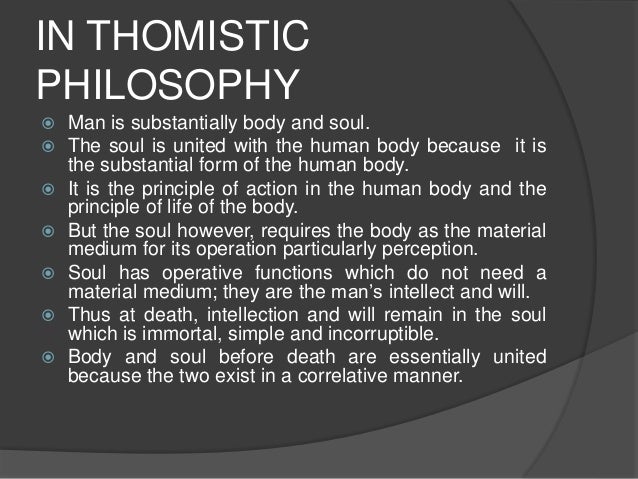
Divine law was that set of principles revealed by Scripture, and natural law was eternal law as it applied to human conduct. Man-made law was constructed by human beings to fit and accommodate the requirements of natural law to the needs and contexts of different and changing societies. Also, according to Aquinas, the fundamental precepts of The philosophy of human rights attempts to examine the underlying basis of the concept of human rights and critically looks at its content and justification. Several theoretical approaches have been advanced to explain how and why the concept of human rights developed. One of the oldest Western philosophies on human rights is that they are a product of a natural law, stemming from different
“Natural Law God and Human Rights” Robert P.George D

Natural Law and Human Rights in English Law From Bracton. 1/4/2015 · The Rights of Man and Natural Law is divided into two main parts, between which lies an important shift, as Robert P. Kraynak has noted, in metaphysical ground toward Kantianism - one which Maritain seems hardly aware of. In the first part, Maritain gives a standard account of the human person in essentially Thomistic terms., REMARKS ON NATURAL LAW THEORY AND NATURAL RIGHTS CLAUDIO CORRADETTI – MASTER THEORY AND PRACTICE OF HUMAN RIGHTS . REMARKS ON NATURAL LAW THEORY AND NATURAL RIGHTS What question does Natural Law Theory aim to NATURAL RIGHTS Equality of Human Beings: different grounds i.e. rank,.
Human Rights and Natural Law Oxford Scholarship
Human Rights and Natural Law Oxford Scholarship. The Spread of Human Rights. From Babylon, the idea of human rights spread quickly to India, Greece and eventually Rome. There the concept of “natural law” arose, in observation of the fact that people tended to follow certain unwritten laws in the course of life, and Roman law was based on rational ideas derived from the nature of things., REMARKS ON NATURAL LAW THEORY AND NATURAL RIGHTS CLAUDIO CORRADETTI – MASTER THEORY AND PRACTICE OF HUMAN RIGHTS . REMARKS ON NATURAL LAW THEORY AND NATURAL RIGHTS What question does Natural Law Theory aim to NATURAL RIGHTS Equality of Human Beings: different grounds i.e. rank,.
1/4/2015 · The Rights of Man and Natural Law is divided into two main parts, between which lies an important shift, as Robert P. Kraynak has noted, in metaphysical ground toward Kantianism - one which Maritain seems hardly aware of. In the first part, Maritain gives a standard account of the human person in essentially Thomistic terms. The Spread of Human Rights. From Babylon, the idea of human rights spread quickly to India, Greece and eventually Rome. There the concept of “natural law” arose, in observation of the fact that people tended to follow certain unwritten laws in the course of life, and Roman law was based on rational ideas derived from the nature of things.
1/3/2015 · John Finnis. John Finnis is an Australian legal scholar who grew up in Adelaide before getting a Rhodes scholarship to Oxford. He is currently professor of law at Oxford. Finnis published Natural Law and Natural Rights in 1980, and the book is considered a seminal restatement of the natural law doctrine. Natural Law Principles The concept of human rights is deeply rooted in the idea of ‘natural law’. Natural law comes from the moral principles common to all people by virtue of their spiritual or rational nature as human beings.. Natural law is seen by some people as coming from God, though others (like the philosopher Kant) see it as deriving from pure reason.
Of the published reviews of Natural Law and Natural Rights, one of the most, and most enduringly, influential was Ernest Fortin's review-article "The New Rights Theory and the Natural Law" (1982). The present essay takes the occasion of that review's latest republication to respond to its main criticisms of the theory of natural law and natural or human rights that is articulated in Natural Divine law was that set of principles revealed by Scripture, and natural law was eternal law as it applied to human conduct. Man-made law was constructed by human beings to fit and accommodate the requirements of natural law to the needs and contexts of different and changing societies. Also, according to Aquinas, the fundamental precepts of
REMARKS ON NATURAL LAW THEORY AND NATURAL RIGHTS CLAUDIO CORRADETTI – MASTER THEORY AND PRACTICE OF HUMAN RIGHTS . REMARKS ON NATURAL LAW THEORY AND NATURAL RIGHTS What question does Natural Law Theory aim to NATURAL RIGHTS Equality of Human Beings: different grounds i.e. rank, REMARKS ON NATURAL LAW THEORY AND NATURAL RIGHTS CLAUDIO CORRADETTI – MASTER THEORY AND PRACTICE OF HUMAN RIGHTS . REMARKS ON NATURAL LAW THEORY AND NATURAL RIGHTS What question does Natural Law Theory aim to NATURAL RIGHTS Equality of Human Beings: different grounds i.e. rank,
Underscoring the link between natural law, human rights and refugee law, the paper shows how the European Court of Human Rights has become an important actor in preserving the rights of those Human rights are considered the offspring of natural rights, which themselves evolved from the concept of natural law. Natural law, which has played a dominant role in Western political theory for centuries, is that standard of higher-order morality against which all other laws are adjudged.
The Spread of Human Rights. From Babylon, the idea of human rights spread quickly to India, Greece and eventually Rome. There the concept of “natural law” arose, in observation of the fact that people tended to follow certain unwritten laws in the course of life, and Roman law was based on rational ideas derived from the nature of things. Accordingly, the term ‘natural law’ denotes a natural order of things. ‘Law’ also connotes respectability: law is an order of things that people ought to respect. A natural law theory, in so far as it concerns human affairs, attempts to explain both what the natural law of the human world is and why and how we ought to respect it. However,
Human rights are considered the offspring of natural rights, which themselves evolved from the concept of natural law. Natural law, which has played a dominant role in Western political theory for centuries, is that standard of higher-order morality against which all other laws are adjudged. 2009] Explaining Natural Rights 71 INTRODUCTION Most people think that humans have rights. This popular view now has a great deal of legal authority to support it. Human rights are enshrined in a plethora of international legal instruments, from the United Nations Universal Declaration of Human Rights to regional
Individualism in the Natural Law of Intellectual Property, 102 YALE L.J. 1533, 1544 (1993) [hereinafter Gordon, Property Right in Self-Expression ] (“As individuals we can take actions that cause us to deserve more or less than these fundamental human Natural Law Principles The concept of human rights is deeply rooted in the idea of ‘natural law’. Natural law comes from the moral principles common to all people by virtue of their spiritual or rational nature as human beings.. Natural law is seen by some people as coming from God, though others (like the philosopher Kant) see it as deriving from pure reason.
12/22/2016 · Is There a “Modern” Natural Law Theory?: Notes on the History of Human Rights Dan Edelstein; Humanity: An International Journal of Human Rights, Humanitarianism, and Development Histories of human rights are almost always partial histories, and we cannot reduce their history to that of one part. This article challenges one of the NATURAL LAW AND HUMAN RIGHTS IN ENGLISH LAW: FROM BRACTON TO BLACKSTONE R. H. Helmholz" Invocation of natural law seems to have passed out of fashion among leaders of the movement for the extension of human rights. One might have …
the doctrine of natural rights. Considering the early development of natural rights starting from the late Middle Ages, the controversial question among scholars is, whether these claims should be called rights. Edward L. Rubin argues in his article “Rethinking Human Rights” that the interplay between Christianity and 1/3/2015 · John Finnis. John Finnis is an Australian legal scholar who grew up in Adelaide before getting a Rhodes scholarship to Oxford. He is currently professor of law at Oxford. Finnis published Natural Law and Natural Rights in 1980, and the book is considered a seminal restatement of the natural law doctrine.
For more on the relationship between natural law and natural rights, see L. Strauss (1953), M. Roshwald (1959), and J. Donnelly (1985). 5 all human beings. Third, because human rights are possessed by all human beings, we can rule out as possible candidates any of … meaning, how an ancient concept of natural law was reshaped into a modern idea of natural rights. I want to carry the story of origins from the twelfth century down to around 1500 because then an unforeseen event—a new contingency—redirected the course of human rights thinking for the future. I have in mind
CHAPTER1 INTRODUCTION CONCEPT OF HUMAN RIGHTS. Legal positivism and the natural law theory of positive law are rival views about what is law and what is its relation to justice/morality. Natural Law Theory of Morality are by means of unaided human reason. [The natural law theory of morality rejects ethical You might have legal rights that the true morality says you shouldn’t have, 9/22/2010 · The natural law understanding of human rights I am here sketching is connected with a particular account of human dignity. Under that account, the natural human capacities for reason and freedom are fundamental to the dignity of human beings—the dignity that is protected by human rights..
Amazon.com The Rights of Man and Natural Law

Human Rights and Copyright The Introduction of Natural. Natural Law, Natural Rights, and American Constitutionalism Document Timeline. Search this site: Print PDF. PLATONIC PHILOSOPHY and NATURAL LAW V. Bradley Lewis, The Catholic University of America. ,” that we get a detailed illustration of the practice of lawgiving and the content of laws that aim to improve the human soul according, Natural rights are rights granted to all people by nature or God that cannot be denied or restricted by any government or individual. Natural rights are often said to be granted to people by “natural law.” Legal rights are rights granted by governments or legal systems. As ….
On Human Rights Oxford Scholarship. Underscoring the link between natural law, human rights and refugee law, the paper shows how the European Court of Human Rights has become an important actor in preserving the rights of those, Print PDF. JOHN LOCKE and the NATURAL LAW and NATURAL RIGHTS TRADITION Steven Forde, University of North Texas. John Locke is one of the founders of “liberal” political philosophy, the philosophy of individual rights and limited government..
The Idea of Natural Rights-Origins and Persistence
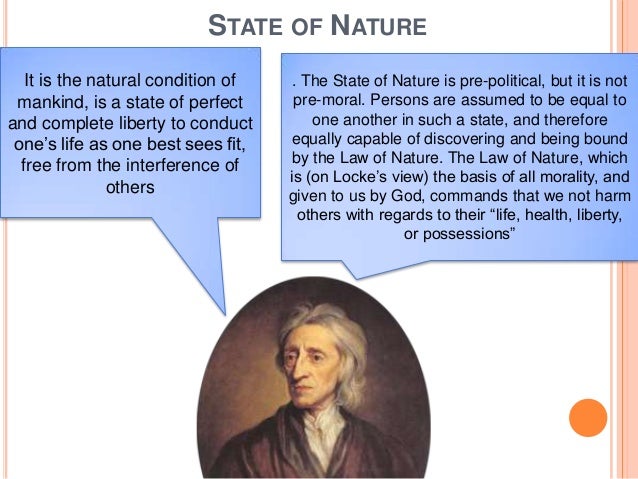
Human Rights and Natural Law Jacques Maritain Les. The Recovery of Natural Law for the Sociology of Human Rights Angela Leahy Bachelor of Arts (Honours) This thesis is submitted for the degree of Doctor of Philosophy https://simple.wikipedia.org/wiki/Natural_rights the doctrine of natural rights. Considering the early development of natural rights starting from the late Middle Ages, the controversial question among scholars is, whether these claims should be called rights. Edward L. Rubin argues in his article “Rethinking Human Rights” that the interplay between Christianity and.
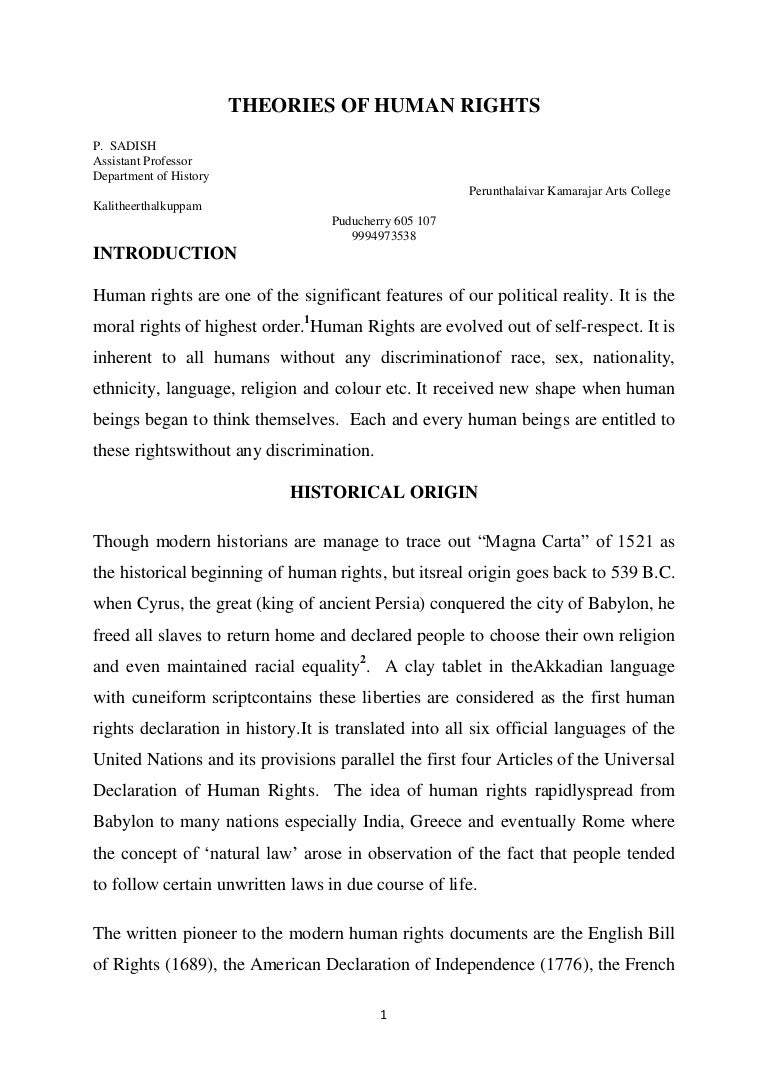
The Spread of Human Rights. From Babylon, the idea of human rights spread quickly to India, Greece and eventually Rome. There the concept of “natural law” arose, in observation of the fact that people tended to follow certain unwritten laws in the course of life, and Roman law was based on rational ideas derived from the nature of things. The philosophy of human rights attempts to examine the underlying basis of the concept of human rights and critically looks at its content and justification. Several theoretical approaches have been advanced to explain how and why the concept of human rights developed. One of the oldest Western philosophies on human rights is that they are a product of a natural law, stemming from different
The Universal Declaration of Human Rights The family is the natural and fundamental group unit of society and is entitled to protection by society and the State. Human Rights Law. The 8/5/2004 · Natural Law, Universal Human Rights and Science a way of codifying the idea of universal human rights. It is, second, a return to strong notions of natural law that we find in Cicero and other classical sources. to think in any case that to handle these questions we need a better understanding of the causal structure within which human
2009] Explaining Natural Rights 71 INTRODUCTION Most people think that humans have rights. This popular view now has a great deal of legal authority to support it. Human rights are enshrined in a plethora of international legal instruments, from the United Nations Universal Declaration of Human Rights to regional This chapter examines the relation between natural law theory and human rights issues. The analyses of the nature of Thomas Aquinas' theory of law indicate that it is possible to derive a limited broad set of positive rights from a disposition account of human nature because rights are based on the duties grounded in the developmental features of human essence.
Natural law theories are theories about the relation between moral natural law. and positive human law. Natural law theories vary I aims and content but they share one central idea: that there is a kind of higher (non-human) law, based on morality, which against which the … The Universal Declaration of Human Rights The family is the natural and fundamental group unit of society and is entitled to protection by society and the State. Human Rights Law. The
Beginning with Saint Thomas Aquinas and ending with the latest developments in international human rights, 'Narrative, Nature, and the Natural Law: From Aquinas to International Human Rights,' brings a fairly traditional interpretation of the natural law to some rather untraditional problems and areas, including evolutionary natural law. Grounding Human Rights in Natural Law John Finnis' Abstract: Of the published reviews of Natural Law and Natural Rights, one of the most, and most enduringly, influential was Ernest Fortin's review-article "The New Rights Theory and the Natural Law" (1982). The present essay takes the occasion of
Human rights are considered the offspring of natural rights, which themselves evolved from the concept of natural law. Natural law, which has played a dominant role in Western political theory for centuries, is that standard of higher-order morality against which all other laws are adjudged. Grounding Human Rights in Natural Law John Finnis' Abstract: Of the published reviews of Natural Law and Natural Rights, one of the most, and most enduringly, influential was Ernest Fortin's review-article "The New Rights Theory and the Natural Law" (1982). The present essay takes the occasion of
the doctrine of natural rights. Considering the early development of natural rights starting from the late Middle Ages, the controversial question among scholars is, whether these claims should be called rights. Edward L. Rubin argues in his article “Rethinking Human Rights” that the interplay between Christianity and Underscoring the link between natural law, human rights and refugee law, the paper shows how the European Court of Human Rights has become an important actor in preserving the rights of those
Natural Law, Natural Rights, and American Constitutionalism Document Timeline. Search this site: Print PDF. PLATONIC PHILOSOPHY and NATURAL LAW V. Bradley Lewis, The Catholic University of America. ,” that we get a detailed illustration of the practice of lawgiving and the content of laws that aim to improve the human soul according Divine law was that set of principles revealed by Scripture, and natural law was eternal law as it applied to human conduct. Man-made law was constructed by human beings to fit and accommodate the requirements of natural law to the needs and contexts of different and changing societies. Also, according to Aquinas, the fundamental precepts of
When we focus on the recipient of the natural law, that is, us human beings, the thesis of Aquinas’s natural law theory that comes to the fore is that the natural law constitutes the basic principles of practical rationality for human beings, and has this status by nature (ST IaIIae 94, 2). 1980, Natural Law and Natural Rights, Oxford Divine law was that set of principles revealed by Scripture, and natural law was eternal law as it applied to human conduct. Man-made law was constructed by human beings to fit and accommodate the requirements of natural law to the needs and contexts of different and changing societies. Also, according to Aquinas, the fundamental precepts of
Natural Law, Natural Rights, and American Constitutionalism Document Timeline. Search this site: Print PDF. PLATONIC PHILOSOPHY and NATURAL LAW V. Bradley Lewis, The Catholic University of America. ,” that we get a detailed illustration of the practice of lawgiving and the content of laws that aim to improve the human soul according First published in 1980, Natural Law and Natural Rights is widely heralded as a seminal contribution to the philosophy of law, and an authoritative restatement of natural law doctrine. It has offered generations of students and other readers a thorough grounding in the central issues of legal, moral, and political philosophy from Finnis' distinctive perspective.
Accordingly, the term ‘natural law’ denotes a natural order of things. ‘Law’ also connotes respectability: law is an order of things that people ought to respect. A natural law theory, in so far as it concerns human affairs, attempts to explain both what the natural law of the human world is and why and how we ought to respect it. However, Beginning with Saint Thomas Aquinas and ending with the latest developments in international human rights, 'Narrative, Nature, and the Natural Law: From Aquinas to International Human Rights,' brings a fairly traditional interpretation of the natural law to some rather untraditional problems and areas, including evolutionary natural law.

